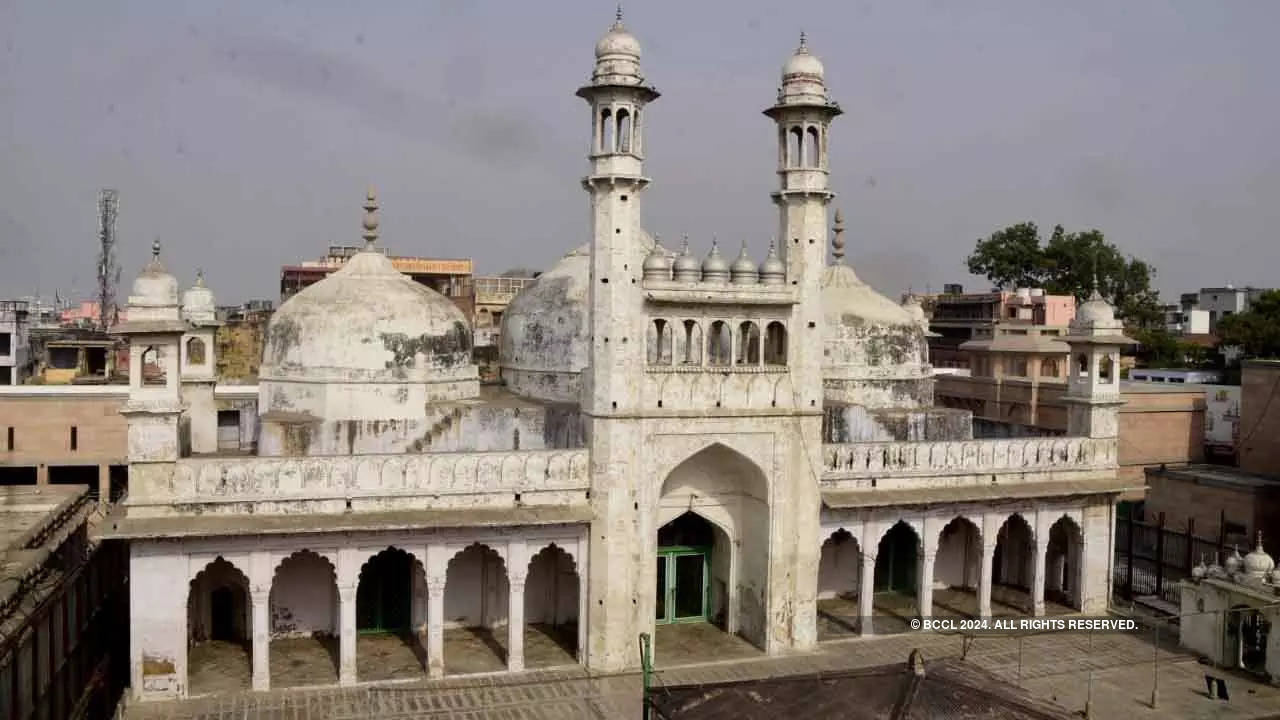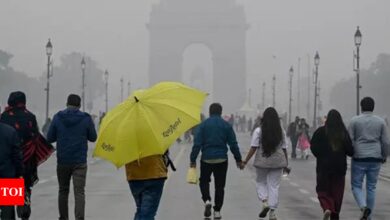Asi: Conduct survey of Gyanvapi complex: Local court to ASI | India News

[ad_1]
Overruling the objection of Anjuman Intezamia Masajid (AIM), the Gyanvapi mosque management committee, district judge Ajay Krishna Vishvesha said: “In my view, if ASI will be directed to hold the survey and scientific investigation at the property in question and submit a report, it will help in just and proper disposal of the case and true facts will come before this court (sic).”
He directed the ASI to conduct a scientific investigation using ground penetrating radar (GPR), excavation if required, dating methods and other modern techniques, while ensuring no damage is caused to the structure, and submit a report by August 4, the next date of hearing.
The order was passed on an application moved by four women plaintiffs on May 16, 2023; the same plaintiffs had also filed a plea in August 2021 to be allowed to worship Shringar Gauri and other deities in the Gyanvapi mosque compound.
Mentioning a high court order passed on May 12, 2023 allowing the scientific survey of a purported “Shivling” found in the ablution pond of the complex, and the subsequent stay by the Supreme Court on this order a week later, the district judge said that the apex court had not stayed the proceedings in this case.
“It is also necessary to make it clear that the ambit of the order passed by the Allahabad HC on May 12 is different from the relief sought in this application. Therefore, if any order is passed on this application, then it will not be covered by the order of the HC and SC passed on May 12 and 19, respectively,” the district judge said.
In his seven-page order, the district judge directed the ASI to undertake a scientific investigation/survey/excavation at the property (settlement plot No. 9130, on which the Gyanvapi mosque exists) in the case, excluding the areas sealed on the SC’s orders and by other courts on May 17, 2022, May 20, 2022 and November 11, 2022.
The ASI has been directed to conduct the scientific investigation in the light of the averment made in the application “after associating the plaintiffs, defendants and their respective counsel (sic)” and submit a report with photographs and videography of the entire survey proceedings.
The court directed the ASI to investigate the age and nature of the construction of the western wall of the building, conduct a GPR survey of the areas just below the three domes, beneath the western wall as well as beneath the ground of all the cellars and to excavate if required.
The agency was also directed to prepare a list of all artefacts found in the building, specifying their contents, and to use scientific investigation methods and dating exercises to find out the age and nature of such artefacts.
The ASI has also been asked to conduct the dating exercises of the pillars and plinths of the building to find out the age and nature of construction. It will also investigate all artefacts and other objects of historical and religious importance existing in different parts of the building, and also beneath the structure, which may be found during the search.
The order contained the historical aspects mentioned by the plaintiffs in their application, details of a court-mandated survey of May 2022, conducted on a plea filed by the four plaintiffs in the present case, and also the objections of the AIM.
In their application, the four plaintiffs have mentioned that “the actual facts existing within the building in question cannot be proved by oral evidence, and the nature of construction, the age of the structure, certain objects hidden behind the artificial walls and beneath the structure can be proved before the court only on the basis of expert opinion, which may be given by ASI in this case”.
“…it is necessary and expedient in the interest of justice that the hon’ble court, by virtue of Section 45 of the Indian Evidence Act,
direct the ASI to conduct a survey and submit a report with regard to the crucial question involved in this suit,” the application says.
Regarding the AIM’s objection to the demand for a scientific investigation as a court-commissioned survey had already been conducted, the district court said that the previous survey — in which a “Shivling”-like structure was found in the ablution pond — was entirely different from the survey sought in this application by the plaintiffs. “Therefore, the objection does not hold much water,” the order said.
Watch Big Gyanvapi verdict! Varanasi Court permits ASI survey of Gyanvapi Mosque premises
#Asi #Conduct #survey #Gyanvapi #complex #Local #court #ASI #India #News





